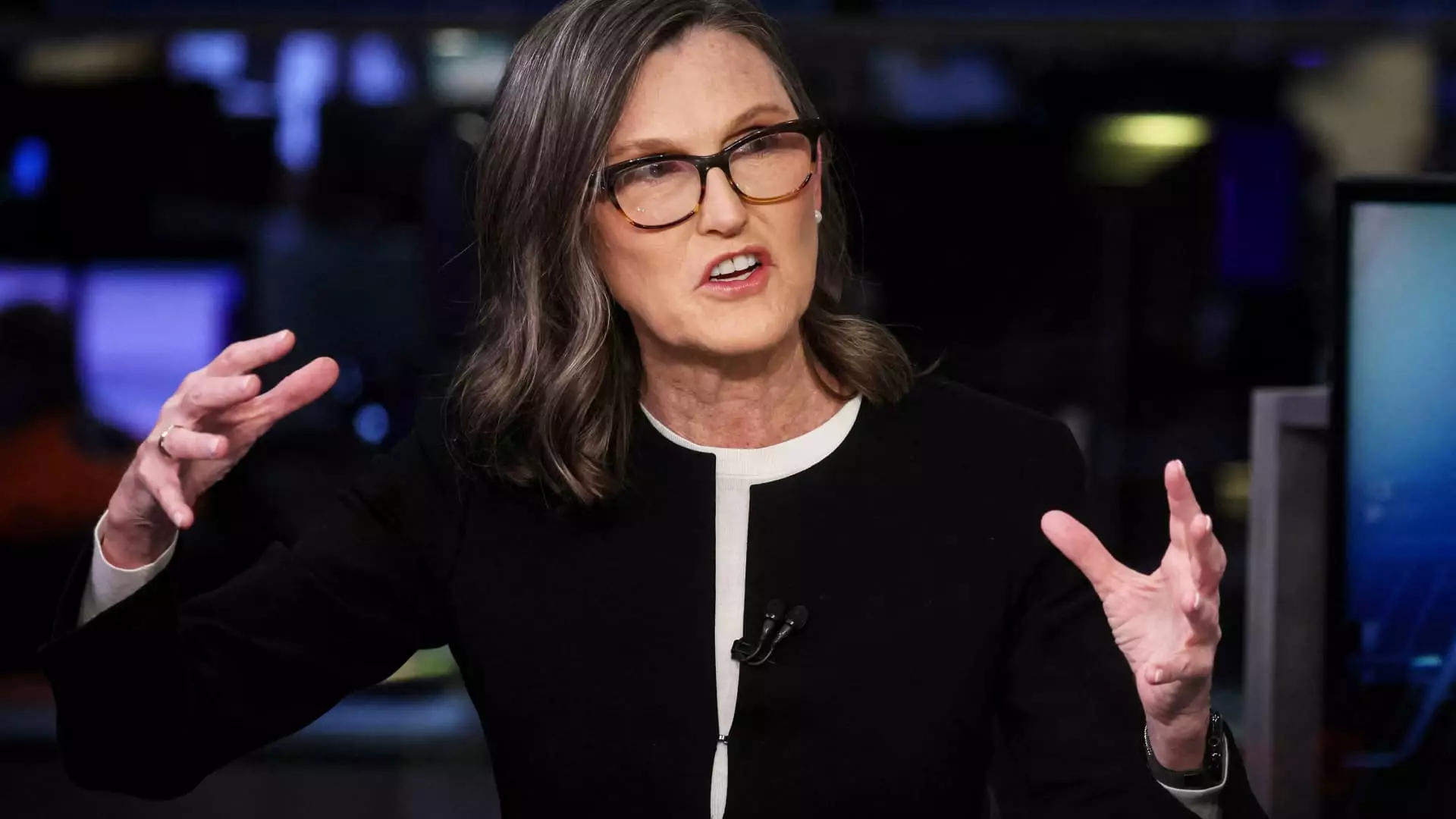Cathie Wood’s Ark Innovation ETF (ARKK) has long been a symbol of the innovation-focused investment movement, capturing the attention of retail and institutional investors alike. However, the rollercoaster ride that ARKK has experienced over the past few years reflects broader trends in both the stock market and investor sentiment. Following the recent re-election of Donald Trump, ARKK found itself on a trajectory of recovery, displaying a substantial uptick of over 30% since November 5. This resurgence has primarily been fuelled by the striking performance of its largest holding, Tesla, which alone accounts for a significant 16.3% of the ETF’s composition. Tesla’s stock has surged nearly 70% post-election, raising hopes for renewed growth and enthusiasm in ARKK.
However, despite the favorable market movements, it is noteworthy that these gains have not translated into actual investor inflows for ARKK. Throughout November and the initial days of December, the fund experienced outflows, totaling $49 million and an additional $24 million, respectively. This indicates that while the ETF is reaping benefits from short-term market rebounds, investor confidence might still be wavering, raising questions about the sustainability of such a rally in the face of broader economic concerns.
The Relevance of Political Influences
The interplay between U.S. politics and the stock market is not a new phenomenon; however, it has garnered fresh attention in the wake of Trump’s presidency. Wood’s optimism regarding the potential deregulation that could accompany Trump’s administration suggests that she is banking on a favorable political environment to foster innovation and growth across various sectors. She envisions a revitalization reminiscent of the economic reforms of the Reagan era, during which technology and industries flourished under less stringent regulatory pressures.
It is essential to understand how such a political context could fundamentally reshape investor sentiment toward tech and innovation plays. The implications are particularly significant for companies like Tesla, which have benefitted under Trump’s policies. Further reinforcing this point is CEO Elon Musk’s substantial financial support for Trump’s campaign, highlighting a symbiotic relationship between political affiliations and business fortunes that could influence the trajectory of such funds going forward.
ARKK’s combination of holdings reflects a broader market sentiment that remains optimistic about emerging technologies, particularly in the realms of electric vehicles and cryptocurrency. For instance, Coinbase has emerged as a secondary powerhouse in Wood’s portfolio, rising over 80% this year as Bitcoin surpassed the $100,000 mark. This surge aligns with campaigned hopes that Trump’s presidency may usher in an era of progressive regulations for the cryptocurrency field, creating important levers for economic benefits.
Not to be overshadowed, Robinhood has also seen its shares skyrocket by over 213% this year, demonstrating that investor enthusiasm is concentrated not only on traditional tech stocks but also on financial technology and crypto trading platforms. This scenario paints a picture of a diversified investment strategy that could continue to blossom with the right political backing.
Despite the significant rallies in some holdings, ARKK’s overall performance remains sobering when past peaks are considered: the fund has seen a staggering 60% decline from its 2021 zenith. This decline underscores the volatility that actively managed funds often experience within the broader market landscape. A key element of Wood’s investment strategy rests on the belief that innovative companies will endure downturns, yet this philosophy faces scrutiny amid rampant volatility.
While the decline in well-established stocks may be disheartening—the likes of Roku and Pinterest have fallen by 9% and 16%, respectively—these figures highlight the divide between market optimism and actual company performance. As investors continue to navigate the uncertain waters of a competitive and rapidly evolving marketplace, the sustainability of investments in innovation-focused ETFs like ARKK will hinge on a delicate balance between market performance, investor sentiment, and the omnipresent influence of political circumstances.
As investors brace themselves for what lies ahead, the landscape surrounding innovation investing remains complex and multifaceted. Cathie Wood’s Ark Innovation ETF represents not just a financial vehicle, but a reflective lens through which to analyze the intricate relationship between innovation, politics, and market dynamics. Understanding how these factors interplay will be crucial for investors looking to make informed decisions in a world where both opportunity and risk are ever-present.

